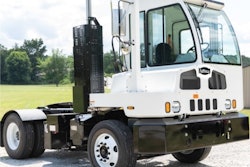Trucking news and briefs for Thursday, June 16, 2022:
Congress takes aim at federal excise tax on trucks
For the second time in the last 12 months, Congress has introduced legislation that would repeal the 12% federal excise tax (FET) on heavy trucks.
On Thursday, Reps. Doug LaMalfa (R-California) and Chris Pappas (D-New Hampshire), introduced the Modern, Clean and Safe Trucks Act of 2022. A similar Senate bill was introduced last year by Sens. Todd Young (R-Indiana) and Ben Cardin (D-Maryland), but it never advanced past the Committee on Finance.
The excise tax on heavy trucks, which was first enacted in 1917 to help pay for World War I, is the highest excise tax levied by the federal government and could add more than $30,000 to the cost of new heavy trucks, trailers, semitrailer chassis and tractors for highway use, according to a press release from bill sponsor LaMalfa. Off-highway equipment such as agriculture, earthmoving, forestry and mining machinery are exempt from the tax. This tax is paid at the time of sale and is not levied on used truck sales, consequentially encouraging the purchase of used vehicles.
It was last increased in 1982 to twelve percent, and although it was set to expire in 1987 it was extended in 1987, 1991, 1998, 2005, 2012 and 2015.

“The federal excise tax has outlived its original purpose by more than a century,” LaMalfa said. “Between Sacramento and Washington, truckers have dozens of regulations on emissions and safety to follow. However, at the same time, our tax code disincentivizes them from purchasing the most up-to-date trucks, with the federal excise tax adding as much as $30,000 by itself.”
The American Truck Dealers (ATD) applauded the bill’s introduction.
“We need new and more environmentally friendly trucks deployed on our roadways,” said Scott McCandless, ATD Chairman and president of McCandless Truck Center. “Half of the Class 8 trucks on the road are over 10 years old and lack the cleaner technologies and fuel efficiency gains of today’s new trucks. The FET is a barrier to our national goal to put more cleaner-emission trucks in service. For electric trucks, the FET is a counterproductive dead weight.”
[Related: Nearly 80,000 active trucks could be barred from operating in California by year-end]
CVSA asks FMCSA to require hemp haulers carry uniform documentation
The Commercial Vehicle Safety Alliance is petitioning the Federal Motor Carrier Safety Administration to require interstate carriers hauling hemp to carry the recommended shipping documents included in the U.S. Department of Agriculture’s final rule on hemp production.
The Agricultural Improvement Act of 2018, commonly known as the 2018 farm bill, prohibited states from stopping interstate transportation of hemp produced under an approved production plan. Then, in 2019, the USDA published a final rule officially legalizing the interstate transportation of hemp.
[Related: USDA officially legalizes interstate transportation of hemp]
CVSA said in its letter that because of differences in state laws, enforcement policies and varying legal classifications of hemp, there are inconsistencies in how hemp transportation is enforced at the state level. “As states work to implement the changes necessary for allowing the interstate transportation of hemp produced under the outlined plan, additional details are needed for law enforcement interacting with hemp during its transportation to ensure a load’s validity and safety,” the group said.
In USDA’s final rule, it recommended a set of shipping documents for carriers to have on hand when transporting hemp, but the agency noted that it was not adding those recommendations as requirements “because it does not have jurisdiction over common carriers or other types of transporters.”
As FMCSA is the federal agency with that jurisdiction, CVSA is asking the agency to include the recommended standardized shipping documents for hemp haulers in the Federal Motor Carrier Safety Regulations (FMCSRs).
Specifically, CVSA asks that carriers have copies of the laboratory testing report(s), hemp grower license, invoice/bill of lading, and contact information of the buyer and seller accompany hemp while being transported.
“Clear, enforceable regulations are a cornerstone of an effective commercial motor vehicle safety enforcement program,” CVSA added. Adding the requirements, the alliance believed, would “ensure that law enforcement has the necessary information to verify a load of hemp’s validity and safety during a roadside inspection."
CVSA added that such a requirement would also be beneficial to carriers, as it would “reduce the amount of time a driver is detained to verify the safety and validity of their cargo, improving efficiency.”
[Related: Owner-ops say no to time/distance limits on 'personal conveyance' in hours regs]
Used truck sales fell in May as average price, age, miles mostly unchanged from April
Preliminary used Class 8 retail volumes (same dealer sales) fell 10% month-over-month from April to May, and were 40% lower in May compared to May of 2021, according to the latest preliminary release of the State of the Industry: U.S. Classes 3-8 Used Trucks published by ACT Research.
Other data released in ACT’s preliminary report included month-over-month comparisons for May 2022, which showed that average retail price and average age both were virtually unchanged, at -1% and +1%, respectively, while average miles were 2% lower month over month. Compared to May of 2021, the average retail price was 66% higher, with average miles and age greater by 4% and 7%, respectively.
“Unfortunately, long-awaited reports of loosening inventories come at exactly the wrong time in the cycle,” said Steve Tam, Vice President at ACT Research. “At the same time, this is part of the phenomenon that defines an inflection point of the cycle. Freight growth is slowing, soon to begin shrinking.”
Tam added that because profitability tends to lag the used truck sales cycle, truck owners are still making investments in equipment, “ultimately over-capacitizing the market. As a direct result, the industry is already seeing significant downward pressure on freight rates, which will result in decreased truck demand, and ultimately, lower truck prices.”








